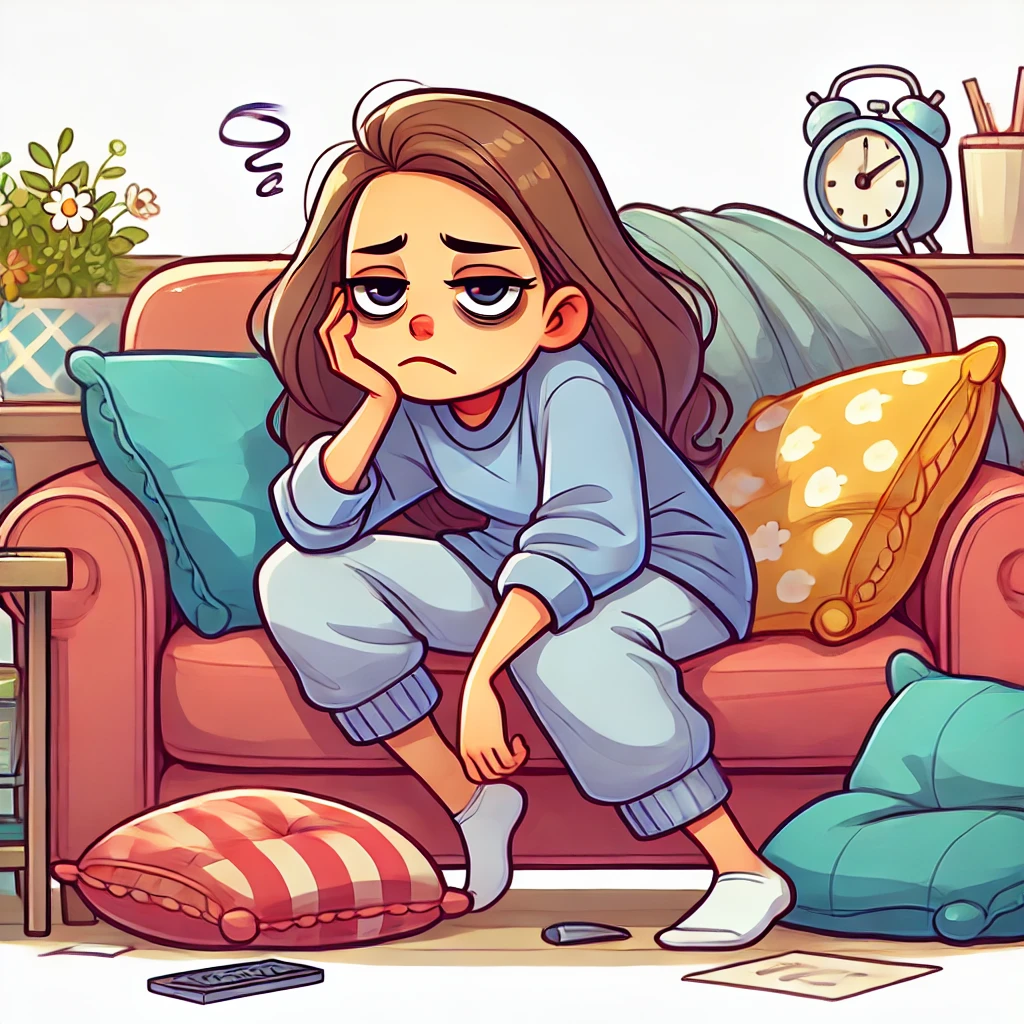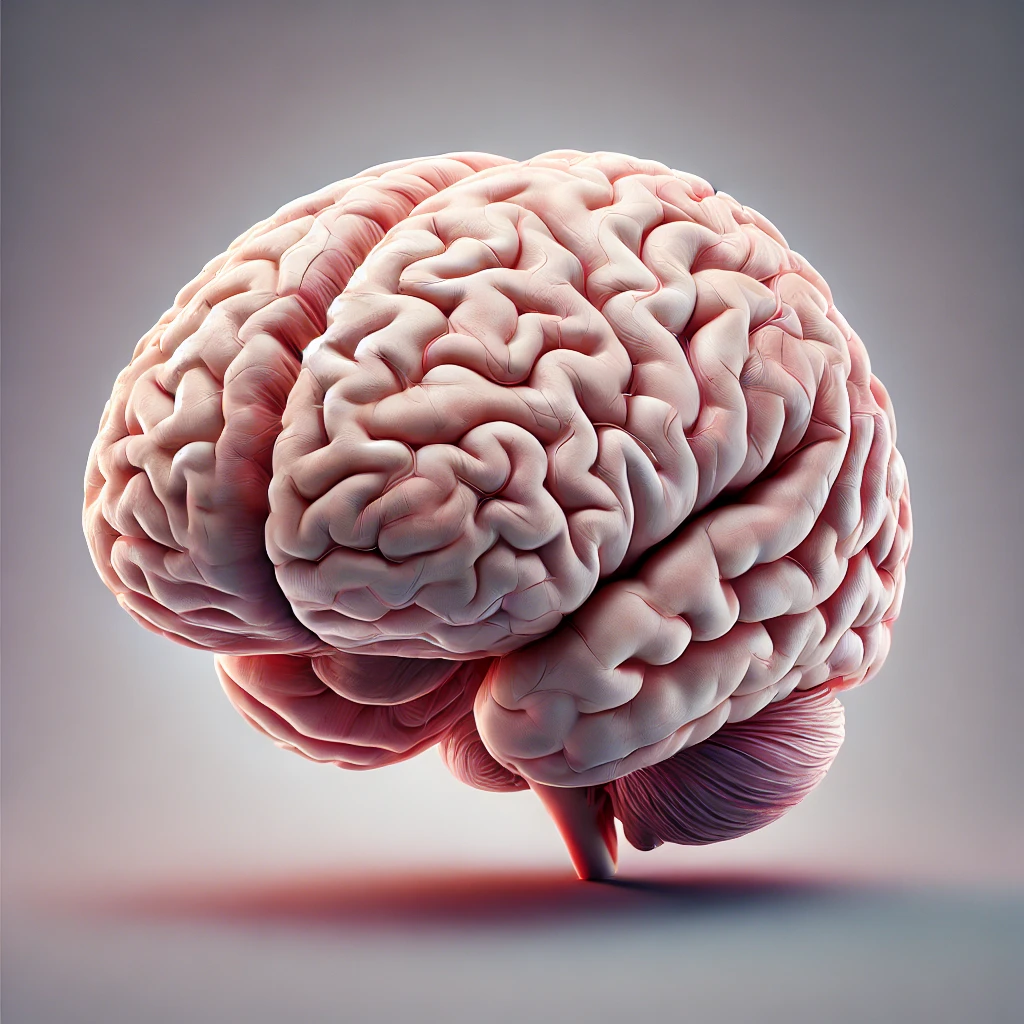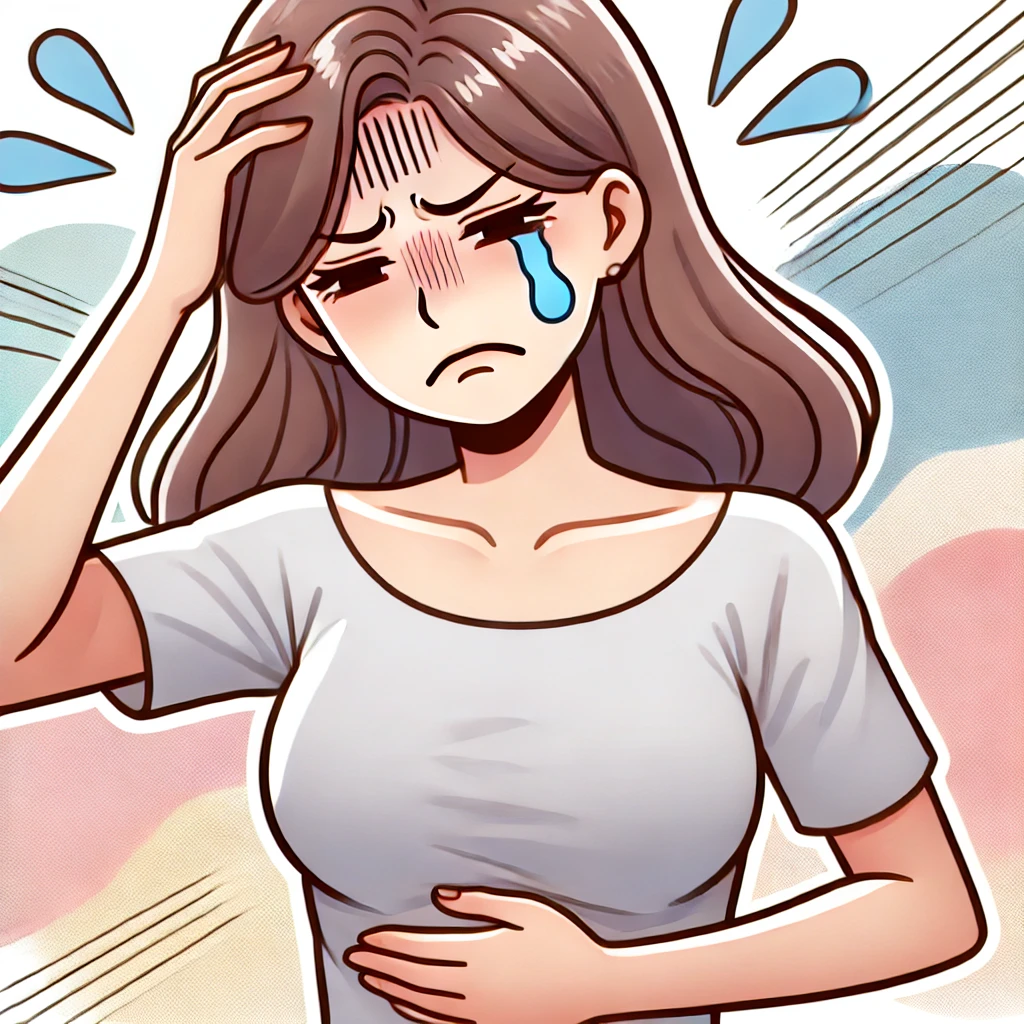What You Need to Know About OCD and ADHD

How are OCD and ADHD related?
Women with Attention-Deficit/Hyperactivity Disorder (ADHD) want to understand how mental health conditions, like Obsessive-Compulsive Disorder (OCD), can overlap. The similarities in their symptoms create confusion, and many women feel ashamed of their OCD symptoms, leading them to keep these struggles to themselves. Unfortunately, many clinicians aren’t adequately trained to differentiate between the two, resulting in misdiagnosis or overlooked issues. This blog post is designed to help you navigate the complexities of OCD and ADHD.
Understanding OCD
A. Definition of Obsessive-Compulsive Disorder
Obsessive-Compulsive Disorder (OCD) is characterized by persistent, intrusive thoughts (obsessions) and repetitive behaviors or rituals (compulsions) that are performed to relieve the anxiety caused by these thoughts. OCD affects about 1-2% of the population, with symptoms often emerging during childhood or adolescence. These compulsions are often time-consuming and can severely interfere with daily life. Click here for a deep dive into OCD Signs.
B. Symptoms of OCD
Common obsessions in OCD include fears of contamination, worries about harming others, or fears of forgetting something important. To cope with these obsessions, individuals may engage in compulsive behaviors such as excessive cleaning, checking locks or appliances, or repeating actions until they feel "just right." For women with ADHD, these obsessions can add an extra layer of stress, emotional dysregulation, and exhaustion to their lives.
I always give my clients the Yale-Brown Obsessive Compulsive Scale (YBOCS) to check in and see if they might have OCD. If you suspect you have OCD, this is a tool you and your therapist can use. There are also other screeners you can take, like this one.
C. Causes and Risk Factors
OCD is thought to be caused by a mix of genetic factors, brain biology, and environmental influences. Abnormalities in the brain's frontal lobe, particularly involving serotonin dysregulation, play a significant role in the development of OCD. Stressful life events can also trigger or exacerbate symptoms, making the condition more pronounced during times of high stress.
D. Impact on Daily Life
For women with ADHD, managing OCD can be particularly challenging. The need to perform compulsions to relieve anxiety can be time-consuming and emotionally draining, leading to increased stress and difficulty functioning in all areas of life. This relentless cycle of obsessions and compulsions can dominate a person's life.
Understanding ADHD
A. Definition of Attention-Deficit/Hyperactivity Disorder
Attention-Deficit/Hyperactivity Disorder (ADHD) is a neurodevelopmental difference, or neurotype, characterized by patterns of inattention, hyperactivity, and impulsivity that interfere with functioning or development. ADHD is commonly categorized into three subtypes: predominantly inattentive, predominantly hyperactive-impulsive, and combined presentation, where symptoms of both inattention and hyperactivity/impulsivity are present. For women, ADHD often presents with more inattentive symptoms, which can sometimes be mistaken for anxiety or other conditions.
B. Symptoms of ADHD
ADHD symptoms vary depending on the subtype. Inattentive symptoms include difficulty focusing, forgetfulness, and problems with organization—issues that are often amplified by the additional mental load many women carry. Hyperactive-impulsive symptoms include fidgeting, excessive talking, and acting without thinking. These symptoms can lead to academic, work, and social challenges, where sustained attention and impulse control are necessary.
C. Causes and Risk Factors
ADHD is linked to genetic factors and structural differences in the brain, particularly involving dopamine and norepinephrine dysregulation in the frontal lobe. ADHD symptoms can change and fluctuate depending on environmental stress and hormones. People with ADHD function best in environments where their brain is supported and they are allowed to use their strengths.
D. Impact on Daily Life
Women with ADHD are often undiagnosed or misdiagnosed for years and accumulate stress from masking behaviors and lack of support. They frequently juggle multiple roles and struggle with unreasonable demands and expectations, contributing to anxiety, depression, shame, imposter syndrome, and burnout.
The Intersection of OCD and ADHD
A. How often do they occur together?
OCD and ADHD can co-occur at high rates, complicating diagnosis and treatment. Studies estimate that up to 25% of children with OCD also have ADHD, and around 12% of people with OCD have ADHD. For women, this co-occurrence can exacerbate symptoms and make it harder to identify which condition is primarily responsible for certain behaviors. The presence of both conditions can also add to the emotional and mental burden many women experience.
B. How do you tell them apart?
The overlap between OCD and ADHD can lead to significant confusion in diagnosis. For example, a woman with OCD may seem inattentive because she is preoccupied with intrusive thoughts, leading to a misdiagnosis of ADHD. Conversely, a woman with ADHD might develop rigid routines or habits as a coping mechanism for her disorganization, which could be mistaken for OCD compulsions. Accurate diagnosis is crucial for effective treatment, as each condition requires a different approach.
C. Shared Symptoms and Confusion
Both OCD and ADHD can involve issues with attention and focus, but the reasons behind these issues differ. In OCD, inattention may stem from the mental energy consumed by obsessive thoughts, making it difficult to concentrate on external tasks. In ADHD, inattention is more about difficulty regulating attention and focus due to neurobiological factors. Similarly, impulsivity in ADHD might resemble the compulsive behaviors seen in OCD. However, the motivations differ—ADHD impulsivity is often driven by a need for stimulation or immediate gratification, while OCD compulsions are performed to reduce anxiety from obsessive thoughts.
This overlap can lead to misdiagnosis, where one condition is mistaken for the other or where both conditions are present but only one is identified. This is why it is essential to consider the context and motivation behind the behaviors when diagnosing.
Treatment Options
A. Treatment for OCD
The primary treatment for OCD includes Cognitive Behavioral Therapy (CBT), particularly Exposure and Response Prevention (ERP), which helps individuals face their obsessions without engaging in compulsions. Another effective form of treatment is Acceptance and Commitment Therapy (ACT). Medication, particularly selective serotonin reuptake inhibitors (SSRIs), is also commonly prescribed to help manage symptoms.
B. Treatment for ADHD
ADHD treatment should be neurodivergent-affirming for women, focusing on psychoeducation, supporting executive functioning, teaching self-advocacy, self-accommodation, self-compassion, self-awareness, and self-care. Stimulant medications like methylphenidate or non-stimulant options are commonly used to help manage symptoms of inattention and impulsivity.
C. Integrated Treatment Approaches
When both OCD and ADHD are present, it is crucial to address both simultaneously, as treating one without acknowledging the other can lead to incomplete or ineffective treatment.
As a therapist who specializes in OCD treatment, I can attest to the fact that neurodivergent people need specialized treatment that takes into account their sensory sensitivities and need for pacing if Exposure and Response Prevention (ERP) is used. ADHD affects the nervous system differently, leading to increased emotional dysregulation. As a result, it may be more challenging for someone with ADHD to handle the same level of exposure therapy that neurotypical individuals can. Additionally, if someone struggles with alexithymia (difficulty identifying and describing emotions), they may find it challenging to use the rating scales often employed in exposure therapy. Therefore, expert knowledge must be present for ERP to be delivered effectively.
Additionally, medication choices need to be made with both conditions in mind. For example, treating OCD with SSRIs can help reduce the anxiety that drives compulsions. Still, if ADHD is also present, stimulant medications might be needed to manage symptoms of inattention and impulsivity. However, care must be taken, as stimulants can sometimes exacerbate OCD symptoms. Collaboration between healthcare providers ensures a balanced approach to managing both conditions.
Coping Strategies and Support
A. Lifestyle Changes and Self-Help Strategies
Incorporating mindfulness and relaxation techniques can help manage both OCD and ADHD symptoms. For those with ADHD, using organizational tools and establishing routines can reduce the impact of inattention and impulsivity. For OCD, mindfulness can help reduce the power of intrusive thoughts.
B. Building a Support System
A strong support system, including family, friends, and support groups, can be invaluable for women managing OCD and ADHD. There is incredible shame attached to OCD and ADHD, and many people with OCD hide their condition for decades. However, shame dissolves when you talk to others about it! Engaging with community resources and involving loved ones in treatment can provide additional emotional support and practical assistance. Understanding and patience from those around them can make a significant difference in the lives of those dealing with these conditions.
FAQ
Q1: Can OCD and ADHD be treated at the same time?
A: Yes, both conditions can and should be treated simultaneously, but it requires a coordinated approach. For example, CBT can be effective for OCD, while behavioral therapy and medication can address ADHD symptoms. It's important to work with healthcare providers who understand both conditions to ensure that treatments do not conflict.
Q2: How can I tell if my inattention is due to OCD or ADHD?
A: Inattention in OCD is often related to being preoccupied with obsessive thoughts, while in ADHD, it stems from difficulty regulating attention due to neurobiological factors. Discussing your experiences with a mental health professional can help determine the underlying cause of your inattention.
Q3: Will stimulant medications for ADHD worsen my OCD symptoms?
A: In some cases, stimulant medications can exacerbate OCD symptoms. If you have both conditions, it's important to monitor how you respond to ADHD medications and communicate any changes to your healthcare provider, who may adjust your treatment plan accordingly.
Q4: Is it common for women to have both OCD and ADHD?
A: While it is not extremely common, it is rare. Studies suggest that around 12% of people with OCD also have ADHD. Women may experience unique challenges when both conditions are present, especially if they have been traditionally overlooked in diagnosis.
Q5: What lifestyle changes can help manage both OCD and ADHD?
A: Incorporating mindfulness practices, establishing structured routines, and using organizational tools can help manage both conditions. Regular exercise, a healthy diet, and sufficient sleep can contribute to overall well-being.
Conclusion
Understanding the complexities of OCD and ADHD is essential for effective diagnosis and treatment, especially for women who may experience these conditions differently. By recognizing the unique and overlapping symptoms of these disorders, individuals and healthcare providers can work together to develop tailored treatment plans. If you or someone you know is struggling with OCD, ADHD, or both, seeking professional help is a crucial first step toward managing these conditions and improving quality of life.
Additional Resources
- International OCD Foundation (IOCDF)
- CHADD (Children and Adults with Attention-Deficit/Hyperactivity Disorder)
- Anxiety and Depression Association of America (ADAA)
- Books: "The Imp of the Mind" by Lee Baer, PhD, and "Driven to Distraction" by Edward Hallowell, MD
- Neurodivergent Insights by Dr. Megan Anna Neff - A resource specifically focusing on neurodiversity, including insights into living with OCD and ADHD.
This blog post is designed to provide women with ADHD with a comprehensive understanding of how OCD and ADHD can overlap, the challenges this creates, and the importance of accurate diagnosis and integrated treatment approaches. The FAQ section addresses common concerns that might arise when dealing with both conditions, helping to clarify some of the confusion that can occur with overlapping symptoms.
This information is intended to empower you with knowledge and encourage seeking the right support for managing these conditions effectively. Remember, you don't have to navigate this journey alone—there are resources, support systems, and professionals who can help guide you toward better mental health and well-being.





